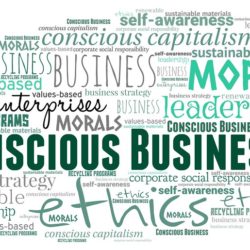
How We Are Switching Vices

Sometimes things happen and these moments make us realize that we need to make changes. I would like to believe that COVID-19 can serve as one of these moments and we can use it to step back and re-examine how we live.
We all have vices. There are things we know aren’t great for us but we continue to patronize because they fill a certain hole in our spirits.
But what if these vices are also bad for the planet? The right logic would see this as an added incentive to completely kick the habit and rid of the world of its very presence. Human logic, on the other hand, takes a slightly different approach and sets out to discover new ways to access our needed kicks.
Human initiative is really quite something and we should be championing the innovators saving us from ourselves.
This week let’s look at the ways we’re uncovering to keep ourselves addicted and sated.
Although you probably wouldn’t immediately considering driving one of your vices, its damaging effects on the environment clearly show it to be something we’d be better off without.
Our culture, however, is built around a car-heavy transportation system and a sizeable percentage of the population are perfectly happy with this system.
So what do you do to balance these scales?
Cars produce large amounts of CO2 and this is where its greatest damage is made. Across the globe nations are setting up emission targets aimed at reducing the amount of CO2 released by cars. This, however, cannot be the only solution.
Enter carbon capture and storage (CCS). This innovation captures the CO fumes and these captured fumes can then be used for other purposes like purifying metals and creating inks (Graviky Labs and their fantastic product Air Ink).
Transportation can even have a hand in this process and many of the big names like Tesla are exploring ways to get cars to capture the carbon they create. Aramco is a name to follow, as this company is exploring carbon capture mechanisms for trucks and cars and already has prototypes that are successfully pulling carbon out of the air.
If we are going to stay on this car-centric road we need these technologies to minimize our damage. Let’s give these innovators the support they need to perfect the process so we can all breathe easier.
The modern diet is full of products that probably aren’t ideal for our bodies but happen to produce an appealing taste. Some of these elements also carry a high environmental cost.
Palm oil is something you may not think about that often, but it is used in a surprisingly high number of products in our kitchen cupboard.
Collecting palm oil, however, is a very damaging process. The deforestation process to access the oil is one of the things seriously affecting the rainforest and the lives of the animals living in the rainforest. As well, the forest loss is releasing extra CO2 into our air.
As an added hurdle, production is being impacted by the coronavirus and this could see operations decrease in the next market period.
A definite example of human vices the chances of getting everyone to stop using palm oil and palm oil products are, sadly, very low. The good news is there are other solutions.
Sustainable palm oil is one obvious option.
The Roundtable on Sustainable Palm Oil was created to help the major parties come together and devise ways to make the industry more sustainable, in turn creating the guidelines for Certified Sustainable Palm Oil (CSPO).
C16 Biosciences, meanwhile, are creating a lab-based palm oil. If successful it will taste the same with none of the rainforest destruction. You can see why this startup is getting attention from major players like Bill Gates.
These are initiatives we want to be successful, as our current diets depend on them.
One of the issues we face as a species is this overwhelming sense that, as individuals, we are too little and insignificant to make a difference. It’s easy to be overtaken by a sense of despair and complacency, choosing to take the coward’s way out and not working towards a better world but if you instead choose to tap into the power and drive humanity has been shown to have there’s so much we can do.
Finding solutions that allow us to limit the damage we do to the Earth is the ultimate in purposeful work. It’s great to see these companies take the initiative.

